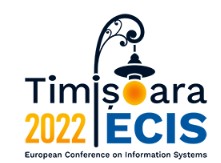Paper Number
1498
Abstract
Increasingly, new energy-efficient technologies connected to smart home arise and bear great potential of influencing user's decisions. Thereby, behavioral interventions like digital nudging are promising to influence behavior. While nudging has been investigated in several contexts to promote sustainable behavior, little is known about its effectiveness in digital choice environments promoting daily energy conservation behavior, especially through mobile applications. As private households account for a large share of total energy consumption, which needs to be reduced to counteract climate change, we conducted an online survey to test the nudging elements framing and default rules, as well as their combination. We surveyed 231 participants and found a large effect of framing and an even larger effect for the combination. This paper contributes by exploring these digital nudges, which received little attention in prior research, and by providing insights on the design of smart home applications to reduce energy consumption.
Recommended Citation
Berger, Michelle; Greinacher, Elias; and Wolf, Linda, "DIGITAL NUDGING TO PROMOTE ENERGY CONSERVATION BEHAVIOR – FRAMING AND DEFAULT RULES IN A SMART HOME APP" (2022). ECIS 2022 Research Papers. 92.
https://aisel.aisnet.org/ecis2022_rp/92
When commenting on articles, please be friendly, welcoming, respectful and abide by the AIS eLibrary Discussion Thread Code of Conduct posted here.


